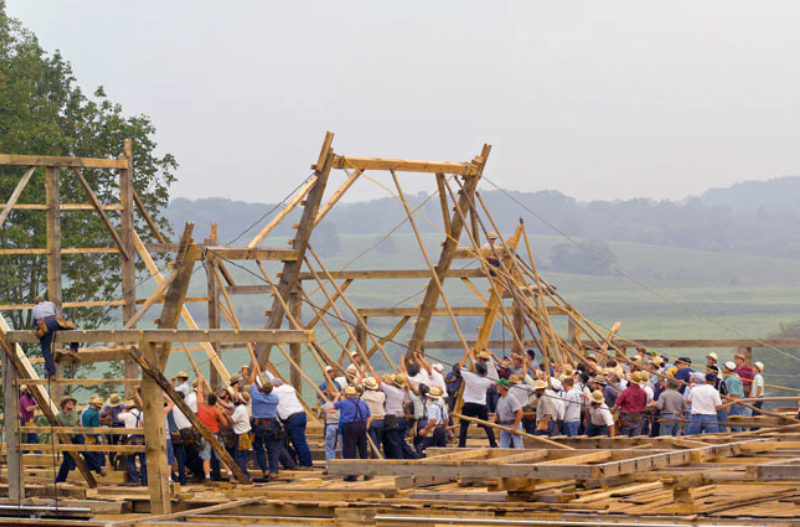January 16, 2015

If you’re reading this post on LinkedIn, then you already understand the power of communities working together to create new possibilities. But as we head into 2015, it’s worth underscoring the importance of community collaboration.
When Nobel Prize winner Muhammad Yunus founded Grameen Bank, his innovation was not so much the idea of lending small sums of money to poor villagers in Bangladesh; it was the idea of lending to small groups of women who could help each other make the best use of the loans and ensure repayment. The community was the big idea.
Communities have long been the key to building things that an individual or family might find beyond their resources. Think about the barn raising tradition. Communities came together to help farmers build over a few days what may have taken months to do individually. A modern example of barn raising can be found atLocal Motors where automotive enthusiasts come together in micro-factories to design and build off-road vehicles faster, and at a fraction of the price, of conventional manufacturers.
Two years ago, I wrote about the importance of making others successful at IDEO. We have found that for our own brand of design thinking, collaboration is essential. It’s the only way we can tackle the kinds of complex challenges that we think most need solving. At IDEO at least, better together is a fundamental business strategy.
This basic insight -- the power of collaboration -- led us to create OpenIDEO, our online community that enables anyone to use design thinking to address pressing global issues collaboratively. We have been blown away by the passion and commitment of the community that has participated in more than 25 challenges. And we’ve learned that the idea of community collaboration is especially valuable in three different ways.
<li><strong>Better understanding of users</strong>. By involving a broader community in the research phase of a challenge, everyone gains a more complete understanding of all the stakeholders and variety of use cases. For example, an <a href="https://openideo.com/challenge/zero-to-five/research/it-takes-a-village-to-raise-a-child" target="_blank" rel="nofollow">OpenIDEO participant from Uganda</a> assembled a team to interview parents and educators in rural villages to get first-hand insights about the most pressing needs for early childhood development.</li>
<li><strong>Relevant place to prototype ideas</strong>. Rather than designing in a vacuum, working <em>with</em> communities in need adds that magic formula necessary to come up with solutions that directly affect those who will benefit from it. You’ll also have a readymade place to try out and improve your ideas. For example, after realizing the need for safe recreational spaces for women in Istanbul, participants of OpenIDEO’s Women’s Safety challenge <a href="https://openideo.com/blog/experience-prototyping-preparations-for-womens-pool-idea" target="_blank">tested their idea through a prototype</a> in that community.</li>
<li><strong>Built-in motivation to implement the idea. </strong>New ideas need lots of prototyping and work before they’re ready for launch. If communities are collaborating to solve their own problems, it’s much more likely that they’ll be motivated to carry the idea forward and to implement the ideas. What’s more, the idea might be picked up by an entirely different group – maybe even in another part of the world – than the one who created it. For example, college students in New York City worked with an NGO in Nepal to <a href="https://openideo.com/challenge/womens-safety/impact/a-tale-of-two-cities-a-dialogue-between-whr-kathmandu-and-design-tinkering-new-york-city" target="_blank" rel="nofollow">develop a new project</a> that helps low-income women support each other in Kathmandu.</li>
If you want to see how some of these ideas are playing out, or contribute to one yourself, check out the latest community-based challenge on OpenIDEO, the transition to renewable energy.
This challenge is relevant to just about everyone on the planet. How can your involvement in this community push the effort to the next level?
(Posted also on my LinkedIn Thought Leader blog)